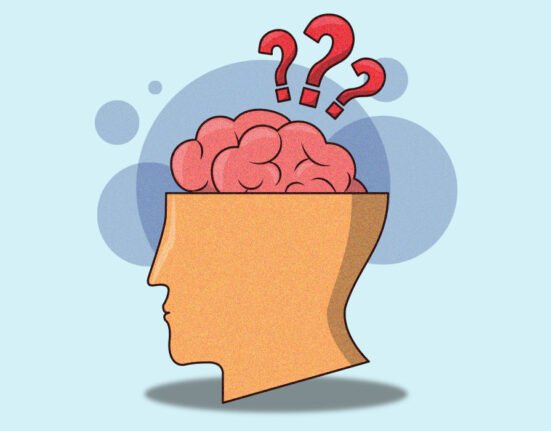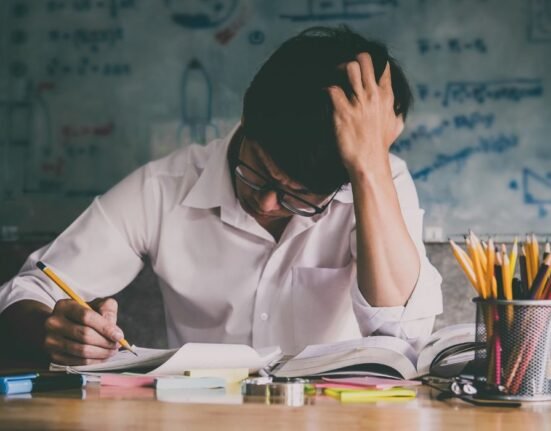Guilt is an emotion, which is considered to have a lot of power, leading to a strong impact on our mental health. It originates from past actions as well and can be the most challenging and overwhelming task to explore. Also, it can fuel one’s motivation, leading to improvement in behaviour and also make one linger or fixate on that decision, making, it unbearable an and hurtful past. and, it promotes positive growth and can also demotivate one until others have forgiven or forgotten
It is often related to the sense of responsibility for causing harm, either to others or to oneself. It is also classified as:
- Healthy Guilt: Here, it is seen as a moral entity. It helps us understand our mistakes and leads us to take responsibility for our actions and rectify them when required. It shows ethical and practical behavior
- Unhealthy Guilt: Guilt in this category is very irrational with a recurrence of self-judgment. They are destructive and lead one to a zone of self-punishment, shame, and emotional distress. It often arises from unrealistic situations and expectations or harsh self-criticism.
The Psychology of Guilt
To better management of guilt and effective way of coping with this complex emotion and the situation arises from its end; one must understand the psychological reason behind it.
Also read: Importance of Boundaries in Friendship
Factors that contribute to the experience of Guilt:
- Cognitive Dissonance: Guilt possibly arises when our actions have a conflict with our beliefs and values. This discomfort is caused by cognitive dissonance, which we acknowledge as guilt.
- Internalized Norms: Societal norms and values, family ethics, and personal standards play significant roles in shaping how we perceive guilt.
- Self-Worth and Self-Esteem: Having low self-esteem and a negative self-image can intensify guilt. Feeling unworthy or undeserving also leads to constant guilt.
Ways to handle guilt:
- Recognizance and Acceptance of Guilt: The first step in dealing with guilt is to acknowledge and accept it. Avoidance or denial only prolongs the emotional distress.
- Differentiating between healthy vs. Unhealthy guilt: Reflect on the guilt if it is based on genuine wrongdoing or if it was the source of irrational expectations. Differentiating between the two can help you respond accurately.
- Taking responsibility and apologizing: If your guilt is a legitimate mistake or harm done to others, taking responsibility and making amends for it is crucial. I apologize for correcting the situation and trying to learn from your actions.
- Self-Compassion: Try to practice self-compassion by treating yourself with the kindness and understanding you would like to offer a friend. Everyone makes mistakes and they should be seen as opportunities for growth.
- Seek Support: Talking to a trusted friend, family member, anyone you feel you can trust or a therapist, can also provide a safe space to discuss your feelings of guilt and gain perspective on the situation and will help you accordingly.
- Mindfulness and Meditation: Mindfulness techniques help one to observe his/her guilt without any kind of judgment. Meditation promotes overall emotional regulation and self-awareness.
- Set Realistic Expectations: One should reevaluate the expectations one has of oneself. Are they achievable and fair, or do they set you up for any unnecessary guilt?
- Forgiveness: One should try to forgive oneself for mistakes that have been made in the past. Nobody is perfect, so trying to let go of the self-blame is a good step towards healing.
Also read: Coping with Grief and Loss: A Guide for Young Adults
Healing from Guilt
- Learn and Grow: Guilt acts as a hindrance to personal growth so its better to take it as a learning opportunity and make positive changes in your life which is beneficial
- Mind-Body Connection: Engaging in different physical activities, having a balanced diet, and having adequate sleep, improve one’s mental state.
- Art and Creativity: Engaging in a variety of artistic or creative activities is considered therapeutic. It allows you to express your feelings more easily and help in gain deeper insights into your emotions.
- Support Groups: Join different support groups of people who have already experienced the same type of guilt and try to communicate with them and see how they can provide validation and understanding. Also, try to ask them different and unique strategies for healing.
- Professional Help: In case of any severe or prolonged guilt or any particular guilt that often leads one to experience mental health issues such as depression or anxiety, try to seek the guidance of a mental health professional.
Also read: Co-Dependency in Romantic Relationships
It is a very important aspect linked to the emotional well-being of human behavior. It is universal. One must learn how to deal with it in an effective manner. Firstly recognizing the sources of guilt to the effective use of the healing process one should be aware of how to manage guilt effectively. Addressing guilt in an effective manner is good for personal growth. It is also more beneficial to address it in a more constructive and healthy way.













Leave feedback about this